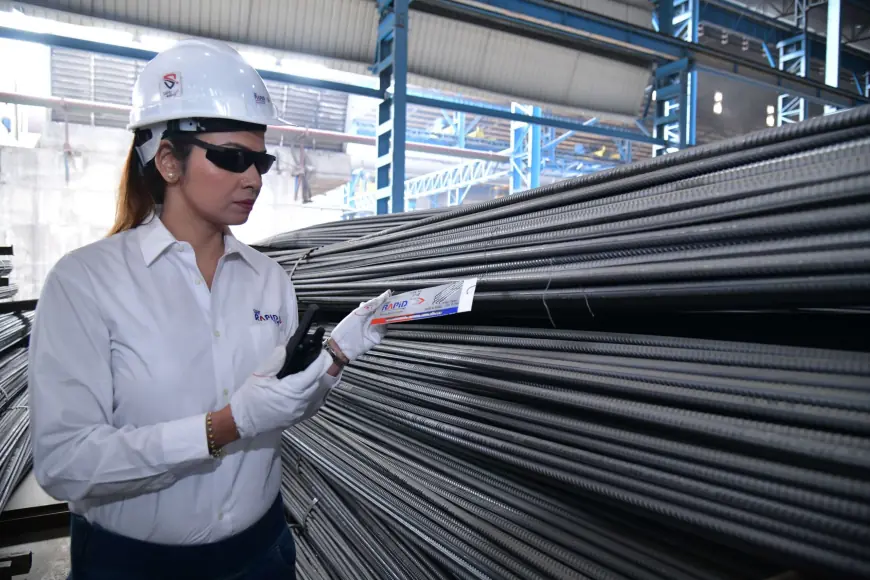Top 5 Corrosion Resistant Materials and Their Applications

Corrosion is one of the primary causes of material degradation across industries, leading to equipment failure, safety risks, and high maintenance costs. Selecting the best corrosion resistant material for your application ensures durability, reliability, and reduced lifecycle expenses.
Here are the top 5 corrosion resistant materials, their properties, and ideal industrial applications.
1. Stainless Steel
Properties:
Stainless steel is renowned for its high corrosion resistance due to the presence of chromium, which forms a passive oxide layer protecting it from rust. Grades like 304 and 316 are widely used, with 316 offering superior resistance due to molybdenum content.
Applications:
-
Construction (railings, façades)
-
Food processing equipment
-
Chemical tanks and pipelines
-
Marine structures (especially 316 grade)
-
Pharmaceutical machinery
Why it’s among the best corrosion resistant materials: Excellent balance of strength, durability, and affordability.
2. Titanium
Properties:
Titanium has outstanding corrosion resistance in oxidising and chloride-rich environments. It forms a protective oxide film that regenerates if damaged, making it nearly immune to pitting and crevice corrosion.
Applications:
-
Aerospace components
-
Marine and offshore equipment
-
Heat exchangers in chemical processing
-
Medical implants and surgical instruments
Why it’s among the best corrosion resistant materials: Extremely high strength-to-weight ratio with unparalleled corrosion resistance in harsh environments.
3. Nickel Alloys (e.g. Inconel, Monel, Hastelloy)
Properties:
Nickel alloys offer excellent resistance to a wide range of corrosive environments, including acidic and high-temperature conditions. Hastelloy, for instance, is highly resistant to both oxidising and reducing chemicals.
Applications:
-
Chemical processing industries
-
Oil & gas refineries
-
Power generation (turbine blades, heat exchangers)
-
Marine engineering
Why it’s among the best corrosion resistant materials: Maintains mechanical strength and corrosion resistance at high temperatures.
4. Aluminium and Its Alloys
Properties:
Aluminium forms a thin, strong oxide layer that protects it from corrosion. Though it is not as strong as steel, its light weight and resistance to atmospheric corrosion make it a popular material.
Applications:
-
Aircraft structures
-
Automotive components
-
Building façades and roofing
-
Food packaging and storage
Why it’s among the best corrosion resistant materials: Lightweight with excellent resistance to atmospheric and freshwater corrosion.
5. Copper and Copper Alloys (e.g. Bronze, Brass)
Properties:
Copper develops a protective patina that prevents further corrosion. Alloys like bronze (copper-tin) and brass (copper-zinc) enhance strength and corrosion resistance further.
Applications:
-
Plumbing systems and fittings
-
Marine hardware and propellers
-
Architectural cladding and decorative applications
-
Electrical components due to high conductivity
Why it’s among the best corrosion resistant materials: Good corrosion resistance with aesthetic appeal and antimicrobial properties.
Conclusion
Choosing the best corrosion resistant material depends on your specific environment, mechanical requirements, and budget. Stainless steel offers versatile applications, titanium excels in extreme environments, nickel alloys withstand chemical and thermal attacks, aluminium provides light weight with atmospheric resistance, while copper alloys combine functionality with aesthetics.
Let me know if you need:
SEO meta description and title
A LinkedIn caption summarising this article for brand engagement posts
Comparison tables for these materials for your upcoming knowledge hub pages.
What's Your Reaction?
 Like
0
Like
0
 Dislike
0
Dislike
0
 Love
0
Love
0
 Funny
0
Funny
0
 Angry
0
Angry
0
 Sad
0
Sad
0
 Wow
0
Wow
0














































